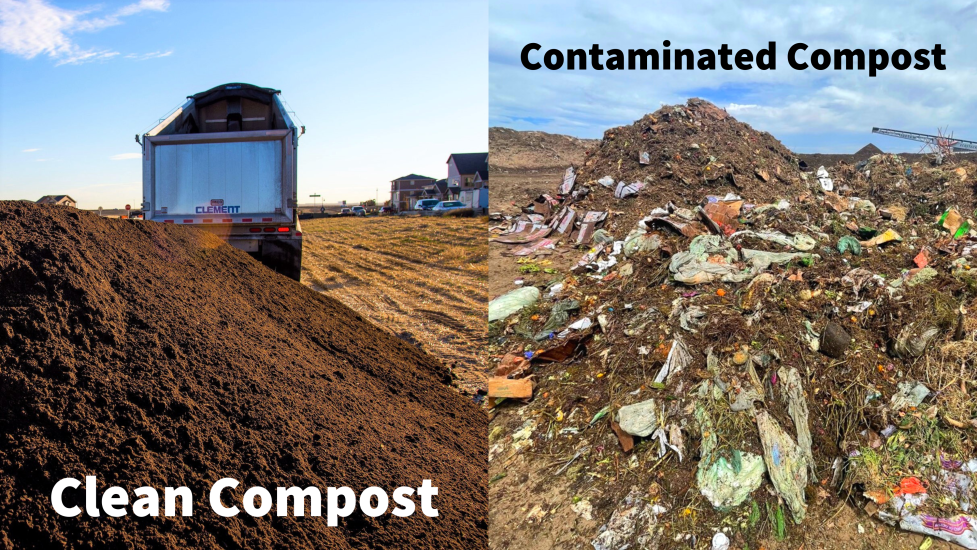If it isn’t food scraps, yard or plant trimmings, it doesn’t go in the compost bin.
Keep these out of your compost bin – they belong in the trash:
- All compostable packaging and products, including certified compostable utensils, cups, plates and to-go containers. Please do not put cups in the recycling stream. Disposable plastic and compostable cups are not recyclable.
- Paper products, like towels, napkins and shredded paper.
- Pizza boxes. Please throw away the greasy half of the box and recycle the clean half.
- Coffee filters and tea bags. Dump coffee grounds and tea leaves into your compost bin and trash the filter or bag.
- Most bags are not allowed, including large certified compostable bags used to line bins. Keep plastic bags out. Check out A1 Organics' website for a list of allowed compostable bags.
What about lawn and leaf bags?
Many waste haulers are still collecting large, brown paper bags used for yard trimmings. These bags must be left next to your compost bin. Please check with your waste hauler for more information. Large yard trimmings, like branches, can be taken to Western Disposal’s Yard Waste Drop-Off Center for a reduced fee.



